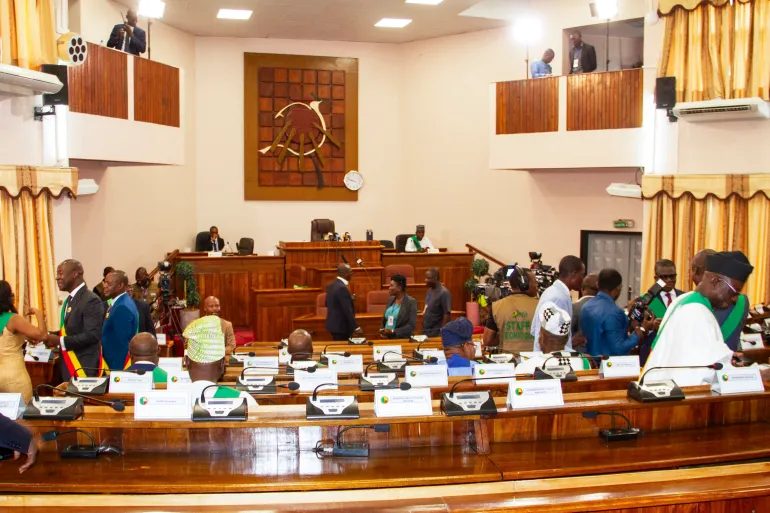Benin Republic Extends Presidential Term to Seven Years
Benin Republic has recently adopted sweeping constitutional changes that reshape its political system.
Lawmakers extended presidential and legislative terms to seven years and created a powerful national Senate.
Benin’s National Assembly has approved a major constitutional amendment that extends the presidential term from five to seven years and establishes a new Senate, marking one of the most significant political reforms in the country’s recent history.

Lawmakers passed the amendment with a strong 90 to 19 vote during a session on Saturday. The Assembly explained that the revised constitution now places the presidential term at seven years, with the possibility of only one more term. The lawmakers also stressed that no individual will be allowed to hold the office more than twice in their lifetime.
The amendment was subjected to a preliminary vote before the final secret ballot. In that first round, deputies met the required three quarters majority, securing 87 votes in favour and 22 against. After crossing that hurdle, the bill proceeded to the final vote, which produced an even wider approval margin.
In total, the Assembly created 15 new articles and amended 18 others. One of the most notable adjustments appears in the updated Article 42, which now states that the President will be elected through direct universal suffrage for a seven year renewable term, with a strict two term limit.
Another major change is the introduction of a bicameral parliament. The updated Article 79 gives legislative authority and government oversight to both the National Assembly and the newly created Senate. This marks the first time the Republic of Benin will operate with two legislative chambers.
The reform also affects the terms of members of parliament. Under Article 80, the tenure of deputies is now seven years and can be renewed. The article also includes a clause aimed at strengthening party discipline. It states that any deputy who leaves the political party that sponsored their election will automatically lose their parliamentary seat.
Changes were also made to define the role of the new Senate. The revised Article 113.1 describes the Senate as an institution created to help regulate national political life and protect the country’s unity, security, and democratic values. Its responsibilities include supporting development and maintaining peace across all regions of the country.
In addition to changes at the national level, the amendment extends the tenure of mayors and municipal councilors to seven years, with the option of renewal. This aligns local government leadership terms with the new structure at the national and legislative levels.
Benin is expected to apply these constitutional changes as the country prepares for the 2026 general election, which will be the first held under the new political framework.



